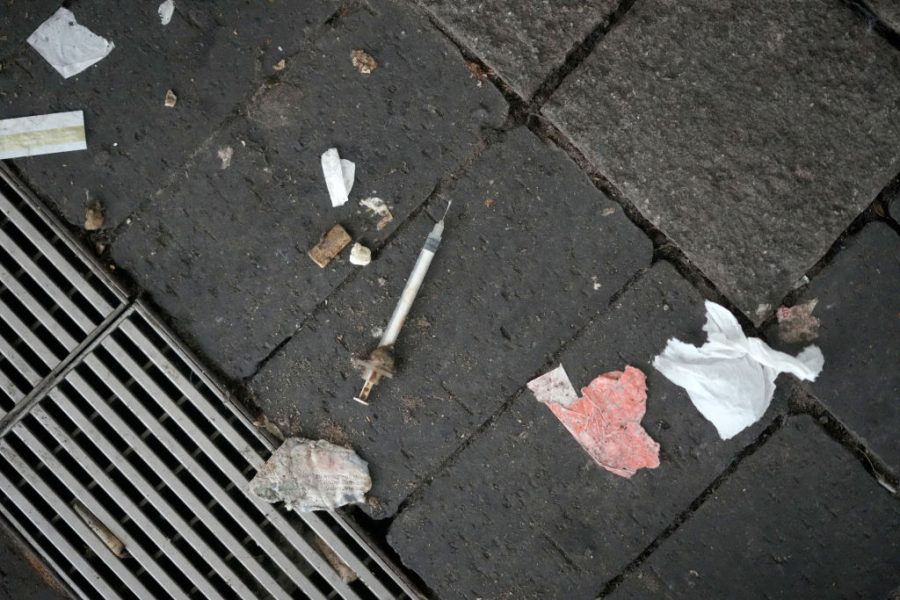It’s an established fact that most of Britain’s drug trade is controlled by Albanians. There is some competition from Turks and Pakistanis but Albanians dominate the industry with their ‘business-like’ methods. They may soon have another partner in crime. Nigerian gangs are increasingly making their presence felt in Europe: this week they were among 27 people arrested in coordinated police raids in Italy, Spain and Albania.
According to Italy’s Carabinieri, the arrests encompassed two drug trafficking gangs, one of which was a Nigerian operation in which they used their young compatriots seeking a new life in Europe to traffic marijuana across the continent. Their base was the bus terminal near Rome’s Tiburtina railway station, described by the Carabinieri as ‘a national and international sorting centre for drug trafficking’. This was close to a migrant reception centre in the Italian capital from where the drug gangs recruited their couriers Working with the Nigerians was an Albanian gang. They brought the drugs to Italy across the Adriatic on speedboats and then sold it on to the Nigerians.
The Nigerian mafia has a presence in the UK, one that is likely to expand in the coming years
The involvement of Nigerians in Europe’s drug trade is not a new phenomenon. A 2012 report by the French Observatory for Drugs and Addictive Tendencies explained that Nigerian crime networks are diverse and widespread. ‘They go from trafficking in young women destined for prostitution in European cities, internet scams and trafficking in heroin and cocaine.’
In 2019, the French newspaper Liberation revealed how Nigerian gangs had established a foothold in Marseille, importing from Africa ‘trafficking, hard drug sales and organised theft networks’. They also brought to France young Nigerians to work as couriers or prostitutes. ‘In the space of two years, Nigerians have become the leading asylum seekers, ahead of Algerians and Albanians,’ reported Liberation. In 2016, only 51 Nigerians had applied for asylum in France; in 2018 there were 979 applications.
While Covid slowed down the flow, it picked up after the pandemic; in 2022 Frontex, the EU border agency, reported that of the 43,000 irregular crossings into Europe via the Eastern Mediterranean route, the majority of migrants came from Nigeria, Syria or Afghanistan. In 2023, thirteen members of a Nigerian gang called the ‘Arrow Baga’ were sentenced by a Marseille court to prison terms ranging from three to ten years for a variety of crimes.
One of their victims, a young Nigerian woman, told the court that she had been forced into prostitution by the gang as a repayment for her passage to France. She was then frequently and violently raped by gang members. The woman also told the court that the gang leader had told her that ‘Marseille belonged to them and that the police couldn’t help us’.
The courageous young woman whose testimony helped convict the gang members also assisted French police in learning more about how the mafia is intertwined with Nigerian cults that grew out of student fraternities.
A 2023 book by two French journalists called ‘Mafia Africa’ shed more light on the Nigerian mafia. In an interview with Marseille’s local paper, the two authors explained how it merges extreme sophistication with terrifying violence, the machete being the weapon of choice. The authors said it would be an exaggeration to describe Nigerians as ‘the new godfathers of Marseille’. But there are at least five such gangs in the city and they are branching out from people trafficking and prostitution to drugs, which includes setting up in other cities like Lyon and Paris.
According to a police report last summer, Nigerian gangs are becoming more active in Paris but are meeting resistance from ‘well-established local networks’. The concern is that the turf wars in Marseille, which in 2023 left 49 dead, will soon break out in the capital.
The Nigerian mafia has a presence in the UK, one that is likely to expand in the coming years because of uncontrolled immigration. In 2023, nearly 16,000 Nigerians applied for asylum in Britain – coincidentally the same as the number of Albanians who made an asylum claim in 2022. That same year the BBC reported how Albanian drug gangs ‘are using the migrant camps of northern France as a recruitment ground’. In return for helping the migrants to cross the Channel, the gangs would recruit them into their criminal enterprise.
A feature of Albanian organised crime is their readiness to work with other mafia. They won’t see the Nigerians as a rival but as a partner. Britain’s drugs gangs are nothing if not diverse.








Comments